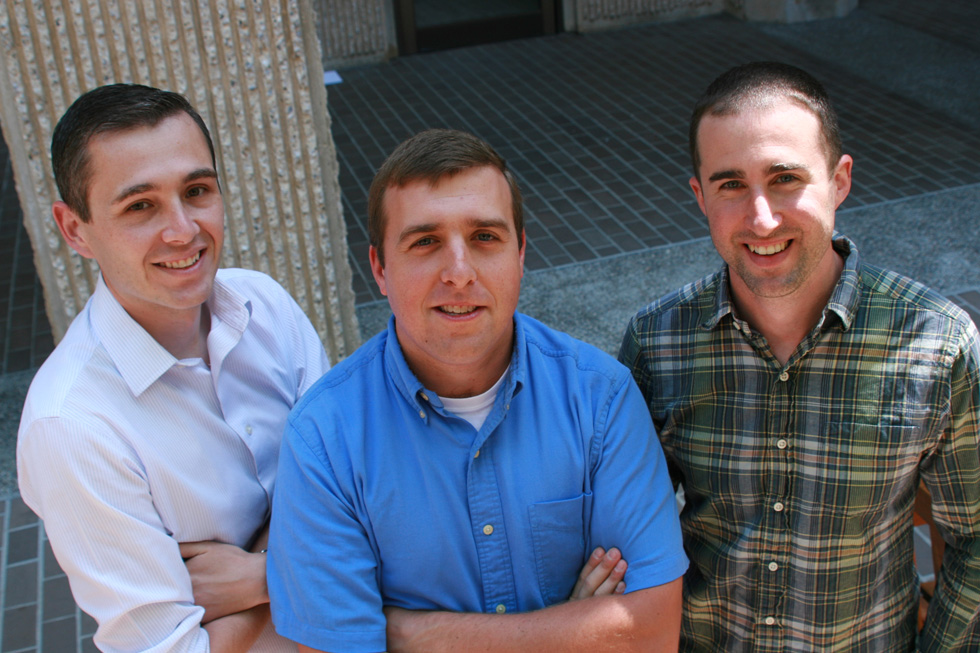Fighting DOMA: Veterans as Amici Curiae
It has become a truism of war that though service members swear their oath to the U.S. Constitution, they fight on the battlefield for those to their left and right.
This remains the case even on today’s blurred battlefield lines, where a routine patrol can end suddenly with an IED explosion and several Americans killed, as it did in Khost, Afghanistan, on October 1, 2012, near the start of Stanford Law School’s fall quarter. For student-veterans studying at SLS after serving overseas, such stories are often a violent break from Stanford’s idyllic lifestyle, wresting us back to a place we perhaps can never fully abandon in favor of Westlaw searches and the Federal Rules of Evidence.
At times the return to that past life can be welcome—a reminder of unyielding camaraderie and shared mission. It is a lifestyle far removed from filling out the 20th clerkship application cover letter, or furiously typing through a third exam on the last day of finals, or bluebooking a journal article alone after midnight in the library reading room.

But here, at Stanford, the oath to the Constitution continues to be a meaningful part of our lives—sometimes even a more active one. In February, Professor Pam Karlan invited the SLS veterans community to join the effort to prepare for the March argument of United States v. Windsor. Working closely with JP Schnapper-Casteras, JD ’09 (BA/MA ’05), an associate at the law firm of Sidley Austin and co-author of the Windsor amicus brief, members of the Stanford Law Veterans Organization planned and executed a focused campaign to secure high-ranking support from the national security establishment, for an amicus brief laying out the numerous ways the Defense of Marriage Act (DOMA) damages military readiness and denies simple equality to fellow servicemembers—in pay, housing, family care, survivor benefits, and basic respect.
Moving outward in widening circles over two weeks, SLS’s veterans collected support from within the law school, the campuswide Stanford network, places like Princeton’s Woodrow Wilson School and Harvard’s Kennedy School, and finally from leading defense and veterans organizations like the Council on Foreign Relations, The Constitution Project, and the Iraq and Afghanistan Veterans of America. Soon, other Stanford students, some from military families, others simply allies in the defense of the Constitution, joined the effort. By the time the brief was submitted on March 1, more than 30 national security experts—including Army, Navy, Marine, and Air Force general officers—had signed on to the brief’s clear statement that “For those experienced in military leadership and familiar with military values, [recognizing the need to repeal Section 3 of DOMA] is easy.”
On March 27, with many SLS student-veterans listening, Solicitor General Donald Verrilli rose in front of the Supreme Court and began the argument for the United States with “What does Section 3 do? … [It] exclude[s] from an array of federal benefits lawfully married couples. That means that the spouse of a soldier killed in the line of duty cannot receive the dignity and solace of an official notification of next of kin.”
For those shaken by the IED explosion of October 1, Verrilli’s argument had particularly raw significance. Along with two fellow soldiers, Sergeant Donna Johnson of the North Carolina National Guard had been killed in Afghanistan leaving behind her wife, Tracy Johnson. When Tracy, also a soldier in the Army, was denied the dignity and benefits ordinarily accorded a military widow, she wrote eloquently of this additional layer of grief in the Washington Post. For anyone who has served in uniform, such mistreatment is unacceptable.
The experience of working on United States v. Windsor and of standing up for Sergeant Johnson’s widow—even as a small part of a stellar legal team engaged in a long campaign to right an egregious constitutional wrong—is a reminder for many of us in Stanford Law’s growing veterans community that though we may have left our uniforms behind to study the law, the oath to support and defend the Constitution endures and the camaraderie of a shared mission persists. And in that fight it is comforting to realize that at Stanford Law, no one needs to fight alone.
Jesse Birbach, JD ’13, is a U.S. Navy lieutenant who served aboard the ballistic-missile submarine USS Kentucky and on the Navy’s Pentagon staff. He co-founded the Stanford Law Veterans Organization.
Sam Jacobson, JD ’14, is a U.S. Marine Corps captain who served in Iraq and Afghanistan. He is the president of the Stanford Law Veterans Organization.
Jake Klonoski, JD ’13, is a U.S. Navy lieutenant commander who served in Afghanistan, the Balkans, and the Horn of Africa. He co-founded the Stanford Law Veterans Organization. In July, he will return to Afghanistan with the Navy. SL
